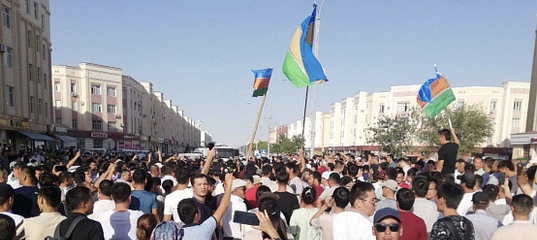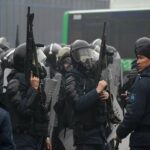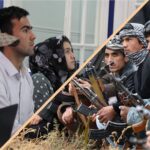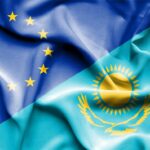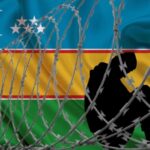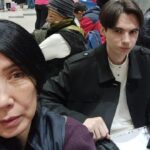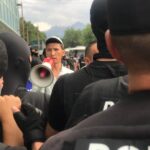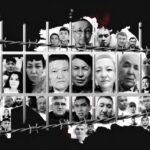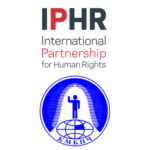Exiled activists from Uzbekistan could face persecution back home if they are extradited from Kazakhstan, human rights campaigners have warned.
Five activists from Karakalpakstan, an autonomous republic in Uzbekistan, were arrested and detained in Kazakhstan last year in the wake of the Uzbek government’s violent suppression of unrest in the region – unrest that they deny involvement in.
The protests erupted in Nukus, Karakalpakstan’s capital, after the republic’s autonomy came under threat from the central Uzbek authorities. At least 21 people died and 240 were injured after police violently broke up the demonstrations, according to Human Rights Watch.
As the Uzbek authorities pursued those they deemed responsible for the unrest, they also sent out extradition requests for the five exiled activists, who were then detained in Kazakhstan in 2022.
In the last two months, all five of the activists have been released from their pre-trial detention centre in Kazakhstan, after the one-year legal detention period ended.
Four of them have now had their refugee applications denied by the Kazakhstani authorities, leaving them with little protection if Kazakhstan decides to approve an extradition request by Uzbekistan.
The fear is that the Karakalpak activists “could face torture and forged trials if sent to Uzbekistan,” Andrei Grishin, a spokesperson for the Kazakhstan International Bureau for Human Rights, told openDemocracy.
“We know this from previous practice of how the Uzbek authorities have treated their opponents, and those arrested earlier for protests in Karakalpakstan,” Grishin said.
Uzbekistan’s outreach
Historically autonomous, Karakalpakstan is recognised as a “sovereign republic” by Uzbekistan, with its own constitution, parliament and president. It covers 40% of Uzbekistan’s territory and is home to two million people (Uzbekistan’s total population is around 33 million).
During its attempts to strip Karakalpakstan of its autonomy last summer, the Uzbek government shut down its internet connection. Then, when people in Nukus gathered en masse and protested ahead of a key vote on the reforms, it declared a state of emergency, violently cracking down on the protests and subsequently targeting protesters, leading to allegations of politically-motivated prosecutions.
Prosecutors in Uzbekistan have charged the five activists with “inciting separatism” and “encroaching on the constitutional order” and some of them were detained in the presence of Uzbek security officials.
They all have residency permits in Kazakhstan. This means they can live and work there and use medical services – but it does not protect them from deportation.
All five activists claim they were not in Uzbekistan during the July 2022 unrest. They suggest the cases against them could be linked to press conferences they held in support of the Karakalpakstan cause in Kazakhstan’s largest city, Almaty, and calls to Karakalpaks living in Kazakhstan to contact the Uzbek embassy to express their opposition to the constitutional amendments.
Record of persecution
Trials within Uzbekistan have already shown the potential punishments Karakalpak activists could face, with two activists sentenced in absentia to lengthy prison terms.
For example, Uzbekistan’s authorities have requested that a Karakalpak diaspora leader in Kazakhstan, Nietbay Ukazbayev, be detained. Ukazbayev is a member of the Assembly of People of Kazakhstan, an advisory body. He used his Kazakhstani passport as a shield against extradition.
Amanbai Sagidullayev, leader of the unregistered party Alga Karakalpakstan (Forward, Karakalpakstan), who has Norwegian citizenship and has been in forced exile since 2011, was also convicted in May this year.
He told openDemocracy: “I was tried in absentia, nobody warned me. I have never called for a change in the constitutional order. I and supporters of the Alga, Karakalpakstan party have always been in favour of respecting the sovereignty of Karakalpakstan.
“Neither I nor my relatives knew who the judge was and who the lawyer was at my trial.”
One of the activists, Yuldasheva, has also been convicted in absentia by Uzbekistan, but she has since been released by Kazakh border guards.
Denis Dzhivaga, coordinator of the UNHCR project Legal Assistance to Refugees and Stateless Persons, told openDemocracy that despite having left the pre-trial detention centre, the Karakalpak activists are not yet safe.
That’s because the refugee status hearings for these activists held so far, Dzhivaga said, “do not inspire optimism”.
“It is difficult to give any guarantees, because the authorities can say with a clear conscience that they have gone through all the procedures here, they have been denied refugee status, and no one has cancelled the extradition request for them.
“The safest thing for them is to leave Kazakhstan as soon as possible. It will definitely not be safe for them to stay here in any case.”
Kazakhstan’s record on refugees
Refugee status has been granted only sporadically in Kazakhstan. In 2022, around 90% of the requests from citizens of Afghanistan and Russia were rejected. This attitude allows Astana to avoid jeopardising its diplomatic relationships with neighbouring authoritarian regimes.
Only 327 foreign citizens currently have refugee status in Kazakhstan, according to data from the Ministry of Labour and Social Protection. The vast majority – 255 – are from Afghanistan, 59 are from Ukraine, six are from China, six are from Syria, and one is from Uzbekistan. To date, 514 additional people have received an asylum-seeker certificate.
Generally Kazakhstan does not expel refugees back to their home countries, as it would violate the 1951 Refugee Convention. They are left to either seek asylum in another country or to live on the margins: without an official status, meaning they cannot access public healthcare or obtain a legal job, and live in a constant fear of expulsion.
In some cases, however, Kazakhstan has been known to send refugees back to the countries from which they fled. In 2009, several Uyghur political and religious figures from China’s Xinjiang region were extradited to China. Then, in 2011, Kazakhstan – in violation of a request of the UN Committee against Torture – extradited 29 asylum seekers to Uzbekistan.
Officially, the Karakalpak diaspora in Kazakhstan consists of 3,000 people. Many others, however, moved to Kazakhstan under a resettlement programme for Kazakh people from other countries.
Akylbek Muratbai, a Karakalpak civil activist living in Almaty, told openDemocracy of the overlap between citizenship and nationality for Karakalpaks living across Kazakhstan and Uzbekistan.
“When the Karakalpak diaspora in Kazakhstan began collecting signatures against the constitutional amendments last year, a quarter of those who came forward to sign were ethnic Kazakhs and Kazakhstani citizens who had once moved from Karakalpakstan themselves,” she said.
“Every fourth person who expressed a desire to support the Karakalpaks were citizens of Kazakhstan! There are ethnic Kazakhs among those unjustly convicted in Uzbekistan after the protests in Karakalpakstan.”
SOURCE:
OpenDemocracy


